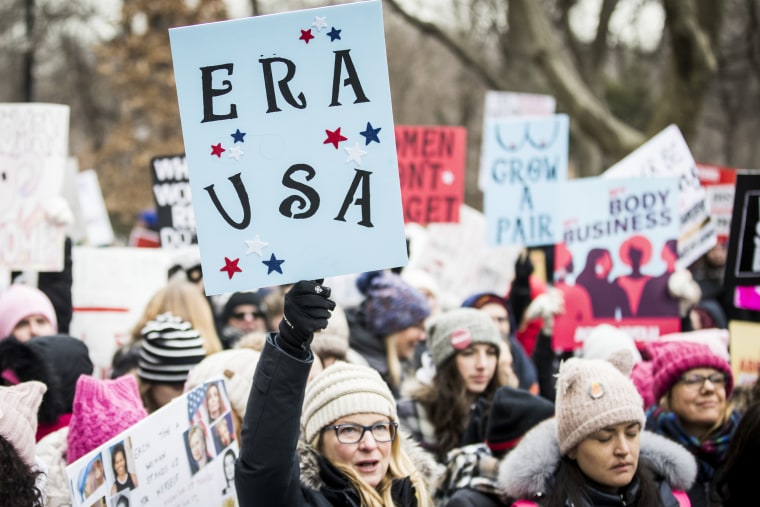Virginia and two other states filed notice Monday that they intend to appeal a federal judge's ruling that said their votes to ratify the proposed Equal Rights Amendment came too late.
"Throughout the years, efforts to have the Equal Rights Amendment added to the Constitution have met with many impediments, but every single time this movement has overcome those hurdles and come out the other side stronger than ever," said Virginia Attorney General Mark Herring.
Illinois Attorney General Kwame Raoul and Nevada Attorney General Aaron Ford joined in the appeal.
The three states — the most recent to vote for ratification — had asked a federal judge to declare that the amendment was formally adopted after Virginia last year became the 38th state to vote to ratify it. They argued that a deadline for adoption had no force of law, since it was placed only in the amendment's proposing clause, not in the actual text that the states voted on.
But U.S. District Court for the District of Columbia Judge Rudolph Contreras ruled in March that Virginia's vote "came after both the original and extended deadlines that Congress attached to the ERA." A ratification deadline in the introduction "is just as effective as one in the text of a proposed amendment."
Originally proposed in 1972, it was passed overwhelmingly by both houses of Congress and endorsed by President Richard Nixon. It would amend the Constitution to add this provision: "Equality of rights under the law shall not be denied or abridged by the United States or any state on account of sex."
It would also give Congress power to pass laws enforcing the provision.
Article V of the Constitution provides that once a proposed amendment is approved by Congress, it becomes adopted when ratified by three-fourths of the states. Virginia said its vote in January 2020 put the ERA over the finish line.
In proposing the amendment, Congress said the ERA would become valid when ratified by the required number of states "within seven years from the date of submission by the Congress." Another congressional vote extended the deadline, but only by three years to 1982.
The House of Representatives approved a resolution in March to remove the deadline for adoption. Its sponsor, Rep. Jackie Speier, D-Calif., said that "there can be no expiration date on equality."
President Joe Biden praised the House vote saying it was "long past time that we enshrine the principle of gender equality in our Constitution."
However, a companion measure in the Senate faces long odds, with little Republican support.

